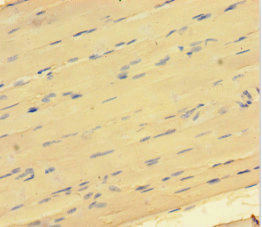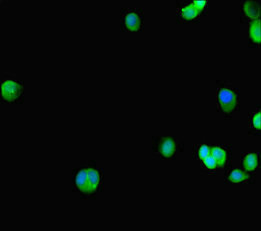Full Product Name
Rabbit anti-Homo sapiens (Human) GATA5 Polyclonal antibody
Alternative Names
GATA binding protein 5 antibody; GATA-binding factor 5 antibody; GATA5 antibody; GATA5_HUMAN antibody; Transcription factor GATA-5 antibody
Immunogen
Recombinant Human Transcription factor GATA-5 protein (336-397AA)
Immunogen Species
Homo sapiens (Human)
Conjugate
Non-conjugated
The GATA5 Antibody (Product code: CSB-PA883616HA01HU) is Non-conjugated. For GATA5 Antibody with conjugates, please check the following table.
Available Conjugates
| Conjugate |
Product Code |
Product Name |
Application |
| HRP |
CSB-PA883616HB01HU |
GATA5 Antibody, HRP conjugated |
ELISA |
| FITC |
CSB-PA883616HC01HU |
GATA5 Antibody, FITC conjugated |
|
| Biotin |
CSB-PA883616HD01HU |
GATA5 Antibody, Biotin conjugated |
ELISA |
Purification Method
>95%, Protein G purified
Concentration
It differs from different batches. Please contact us to confirm it.
Buffer
Preservative: 0.03% Proclin 300
Constituents: 50% Glycerol, 0.01M PBS, PH 7.4
Tested Applications
ELISA, IHC, IF
Recommended Dilution
| Application |
Recommended Dilution |
| IHC |
1:20-1:200 |
| IF |
1:50-1:200 |
Storage
Upon receipt, store at -20°C or -80°C. Avoid repeated freeze.
Lead Time
Basically, we can dispatch the products out in 1-3 working days after receiving your orders. Delivery time maybe differs from different purchasing way or location, please kindly consult your local distributors for specific delivery time.
Usage
For Research Use Only. Not for use in diagnostic or therapeutic procedures.








